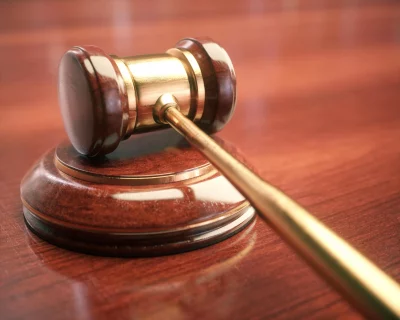California’s criminal laws point to a broad selection of criminal conduct that is punishable by measures such as:
- death,
- jail,
- fines,
- removal from office,
- disqualification to hold and enjoy any office of honor, trust, or profit in this State.
Although many of its criminal laws and punishments are comparable to those of other states, California is different in several respects. Marijuana possession, for example, is a minor misdemeanor punishable by a small fine in the State. However, California has overcrowded jails and has received several complaints from inmates regarding harsh conditions.
A person charged with a crime in California will want to know about the crime and its consequences:
- What must the prosecution prove to get a conviction?
- What is the sentence? Is it a range, and what variables could influence a judge’s decision to impose a lesser or higher sentence? Are any legally recognized defenses to this charge available?
Are you facing criminal charges in California? Being charged with a crime in California is a serious matter that you should not take lightly.
You should act quickly and get help from an experienced San Luis Obispo criminal defense attorney. If you are under investigation, everything you say or do could be used against you by criminal law enforcers. You need to protect your rights! Contact a knowledgeable criminal defense lawyer from the 805 Law Group to immediately represent you in your criminal case.
What Constitutes A Crime?
What is considered criminal conduct? There are numerous types of crimes. There are countless books — mostly referred to as criminal codes or penal codes, that describe all crimes in a given jurisdiction, including punishments for such offenses. The bottom line is that a crime is wrongdoing that’s distinct and distinguishable from civil wrong.
Civil wrong differs from crime in that it doesn’t violate society’s moral standards to the same extent. Civil wrong can involve one person’s misbehavior toward another, such as defamation (libel or slander) or a breach of contract. Although both claims are “wrongs,” they’re not regarded as moral turpitude in the same manner as criminal conducts are. Thus, in the broadest sense, criminal conduct is any behavior forbidden by law and is judged to violate society’s moral standards.
Criminal conduct can be broadly classified into several categories. Among these are:
Personal Crimes

Personal crimes include:
- homicides of various types,
- assault and battery,
- domestic violence (including spousal and child abuse),
- kidnapping,
- rape,
- sexual abuse, and other similar offenses.
Property Crimes
Crimes that involve interfering with another person’s property are property crimes. These crimes may cause mental or physical harm to a person, but their primary effect is to deprive someone of using and enjoying their property.
Examples of property crimes include:
- automobile theft,
- burglary,
- larceny,
- robbery, and
- shoplifting
Statutory Crimes
In addition to the other crimes mentioned above, statutory crimes are prohibited by statute. The most common forms of statutory crimes are:
Crimes Related To Alcohol
Alcohol-related crimes include DUI, open container violations, minors possessing alcohol, public intoxication, and other similar offenses.
Crimes Related To Drugs
Drug crimes include the creation or distribution of controlled substances and the possession and consumption of those substances.
Traffic Offenses
“Traffic offenses” are crimes committed by people who drive their cars on public roads. This type of crime may overlap with other types of crimes. A DUI, for example, is both a traffic offense and an alcohol-related crime. Other traffic offenses include:
- Driving while license is suspended or revoked.
- Driving with no license.
- Hit-and-run accidents.
- Reckless driving.
- Other similar offenses.
Depending on the circumstances, if a traffic violation causes death, it can be charged as a more serious crime, such as homicide or manslaughter.
Financial/White Collar Crime
Crimes in which one person deceives another for monetary gain are financial and white-collar crimes. These include different forms of blackmail and fraud, cybercrime, embezzlement, tax fraud, money laundering, and other similar crimes.
Ultimately, statutory crimes are forbidden explicitly by statute to discourage people from committing them.
Inchoate Crimes
An attempt to commit a crime entails trying but failing to commit an unlawful act. Failure could result from unexpected events interfering with the effort, or it could simply be a change of heart.
To prove a crime, the most crucial element is intent.
Individuals must have had specific intent to engage in that activity or commit a particular crime. The individual must have taken some action to further the crime. Finally, the crime itself must not have been committed or completed.
The penalties for inchoate crimes vary depending on the circumstances. In some cases, those who commit these crimes will face the same punishment as those who commit the underlying offense, but the penalty may be less severe at other times.
Criminal conduct is classified as felonies, misdemeanors, or infractions:
Felonies
Crimes classified as felonies are the most serious crime and are usually punishable by imprisonment for more than a year. Sometimes, felonies will result in sentences of life imprisonment without the possibility of parole or the death penalty. Most states have various felony classifications with increasing penalties for their most serious crimes. The law has established minimum and maximum guidelines for sentencing for each class of felony crimes.
Misdemeanors
Crimes that do not reach the level of a felony crime are misdemeanors. The maximum sentence for misdemeanors is one year in jail or less. The gravity of the crime usually determines the difference between misdemeanors and felonies.
Infractions
Crimes that typically do not carry a jail sentence as a potential punishment are infractions. Infractions are common violations of local laws or ordinances such as speed limits, improper trash disposal, running a business without a valid permit, and other similar offenses. Infractions are frequently punished by fines, which you can sometimes pay without appearing in court.
Although there are many different types and classifications of crimes, all crimes have one common factor: the punishments are defined by law, and society’s job is to carry out criminal justice. When a crime is committed, a government prosecutor (a county attorney, a district attorney, or a federal district attorney) charges and prosecutes the alleged offender.
Crime Vs. Civil Wrong
Unlike a criminal offense, when a civil wrong is perpetrated, a lawsuit is usually filed by one party against another party through the assistance of a hired private lawyer. For civil crimes, there is no incarceration, and punishments are generally in the form of a fine or other forms of compensation. And while a civil defendant may feel as if they are being punished when a case is heard against them, the result is very different from that of criminal prosecution.
Criminal Conduct Not-For-Profit Community Organizations
It doesn’t happen very often, but criminal conduct can happen within non-profit community organizations.
A specific action (or failure to act) can sometimes be both a crime and the basis for civil damages or compensation.
Not-for-profit organizations may be affected by the following criminal conduct:
- fraud
- stealing and embezzlement
- criminal property damage
- assaults, including criminal sexual conduct
- stalking and harassment, as well as
- Failure to report specific incidents, such as child abuse, and other types of notifiable incidents such as work health and safety laws issues.
If you are suspected or accused of these in your organization, you need to know what to do. Consult us right away!
Contact A San Luis Obispo Criminal Defense Attorney Today!
If you are being charged with a crime, your first move should be to talk with a lawyer who can provide you with the legal information and legal advice needed to decide your next steps. We can help you!
Our firm, the 805 Law Group, will fight for your rights by delivering personalized and compassionate services that consistently work to protect your freedom, rights, and future. We have over 20 years of legal experience representing individuals in Atascadero, San Luis Obispo County, and the surrounding areas of California, handling family law and divorce matters and personal injury claims, and criminal defense representation.


